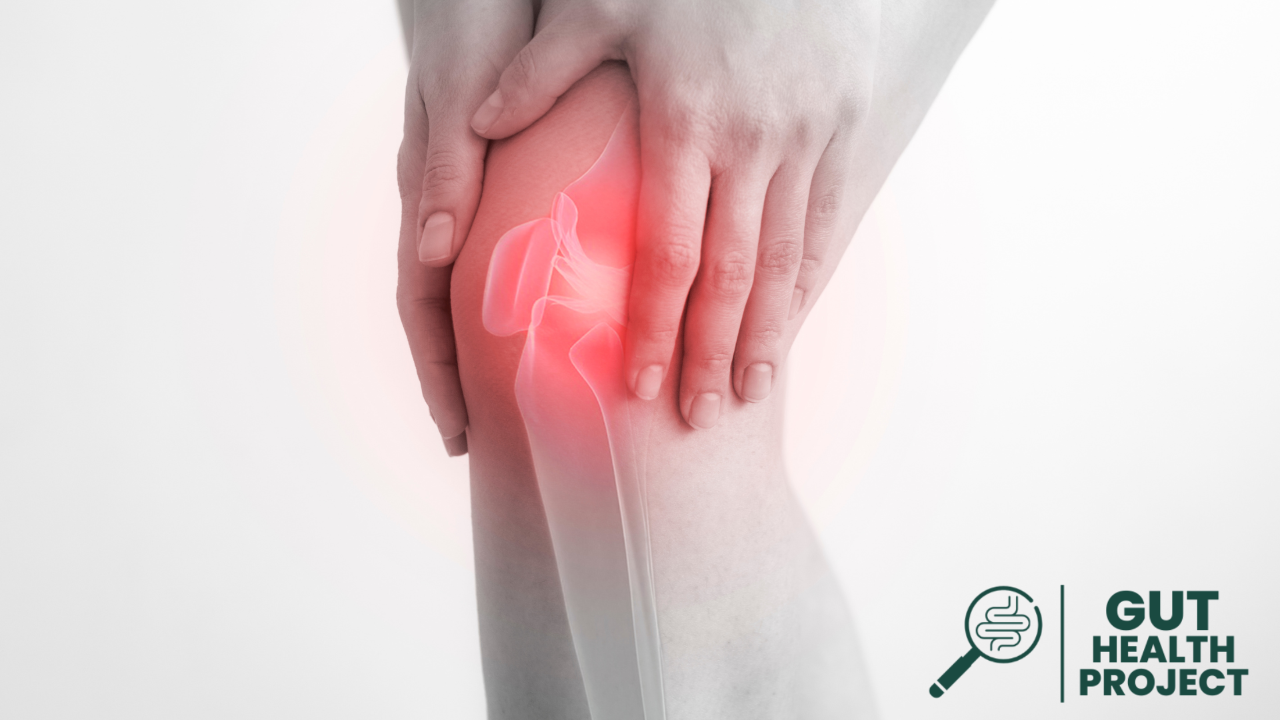The Link Between SIBO and Joint Pain
Apr 19, 2025
If you've been grappling with persistent joint pain that defies conventional treatments, it's time to consider an often-overlooked culprit: your gut health. Specifically, Small Intestinal Bacterial Overgrowth (SIBO) may be playing a significant role in your discomfort.
Understanding SIBO
SIBO occurs when there's an abnormal increase in the number of bacteria in the small intestine. This overgrowth can disrupt normal digestion and lead to a range of symptoms, including bloating, gas, diarrhea, and abdominal pain. However, the impact of SIBO isn't confined to the digestive system; it can have far-reaching effects throughout the body.
The Gut-Joint Connection
Emerging research suggests a strong link between gut health and joint function. Here's how SIBO might contribute to joint pain:
Systemic Inflammation
The excess bacteria in SIBO can produce toxins that may enter the bloodstream and trigger widespread inflammation. This systemic inflammation can affect various tissues, including the joints, leading to pain, stiffness, and reduced mobility. Many people with unresolved joint discomfort often find themselves surprised when the trail leads back to the gut.
Autoimmune Responses
SIBO may also play a role in triggering or exacerbating autoimmune conditions that affect the joints. The immune system, once activated by the overgrowth of bacteria, may begin to confuse healthy tissue with a threat—mistakenly attacking the body's own joints and connective tissues. This process can lead to chronic, cyclical pain that’s often misdiagnosed or poorly managed when the gut isn't considered.
Nutrient Malabsorption
SIBO interferes with the absorption of essential nutrients like vitamin B12, vitamin D, and magnesium—all of which are crucial for joint and muscle function. When the small intestine is overwhelmed by bacteria, nutrients don’t get absorbed effectively. Over time, this deficiency can lead to muscle weakness, fatigue, and heightened sensitivity in the joints.
Recognizing the Signs
Many people go years treating their joint pain with physical therapy, anti-inflammatory medications, or even surgery, without ever considering that their gut could be playing a role. If you’ve noticed digestive issues—like bloating, irregular bowel habits, gas, or unexplained food sensitivities—alongside your joint pain, the connection might be more than coincidence.
Even if your joint pain feels isolated, ask yourself: Did it start after a period of illness, a stressful event, or a change in diet? Is it accompanied by fatigue, brain fog, or skin issues? These overlapping symptoms often point to a deeper imbalance.
Taking Action
Addressing SIBO and its impact on joint pain isn’t about quick fixes—it’s about understanding and addressing the root cause.
Get Tested
If you suspect SIBO could be behind your symptoms, consult a healthcare practitioner trained in functional or integrative medicine. Breath testing can help confirm the presence of SIBO and guide your treatment approach.
Target the Bacteria
Treatment may include antibiotics or herbal antimicrobials to reduce the bacterial load. A tailored dietary plan is often key during this phase, as certain foods can fuel or reduce bacterial overgrowth.
Repair the Gut
Once the overgrowth is managed, the focus shifts to repairing the gut lining, rebalancing the microbiome, and supporting digestion. This includes incorporating probiotics, digestive enzymes, and nutrients that rebuild the gut wall and reduce inflammation.
Support Joint Health
Alongside gut healing, it’s important to restore nutrient levels through both diet and supplementation. Anti-inflammatory foods, omega-3 fatty acids, and regular gentle movement can all support recovery and reduce joint discomfort.
A New Way Forward
It can be frustrating to experience pain that seems to have no clear explanation—especially when traditional treatments fall short. But understanding the gut-joint connection opens up an empowering new perspective. SIBO may not be the first thing that comes to mind when your knees ache or your fingers feel stiff, but for many, it's the missing piece of the puzzle.
You don’t have to live with chronic pain. If your symptoms feel like they aren’t being fully addressed, it’s worth exploring whether your digestive health could be the hidden factor. Listening to your body, asking the right questions, and digging deeper can make all the difference—not just for your joints, but for your overall vitality and well-being.


